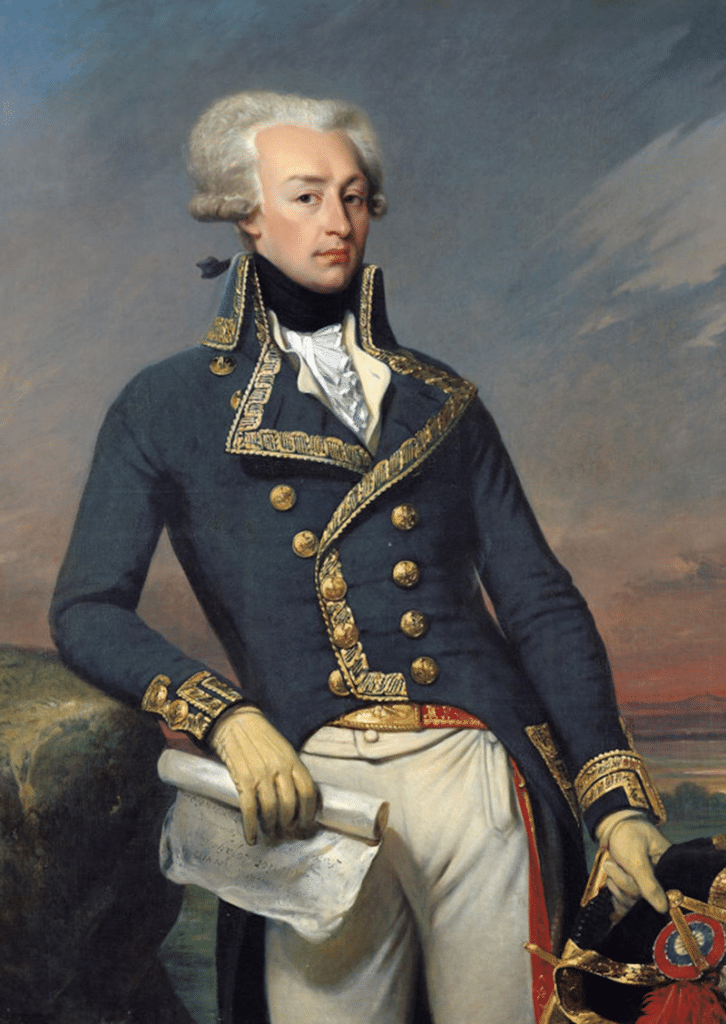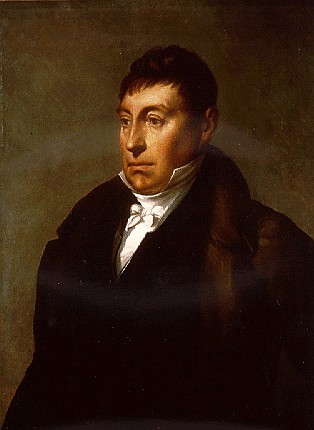Marquis de Lafayette was a French nobleman and General. He served the Americans during the American Revolution and became a trusted voice and friend to George Washington. After the war, he became a national hero and returned to France, where he carried many of the ideas of America to the French. He became an influential voice in the French Revolution.
Jump to:
Marquis de Lafayette Biography: Early Life

Lafayette was born on 6 September 1757 to Michel Louis Christophe Roch Gilbert Paulette du Motier, Marquis de La Fayette, colonel of grenadiers, and Marie Louise Jolie de La Rivière, at the château de Chavaniac, in Chavaniac-Lafayette, near Le Puy-en-Velay, in the province of Auvergne.
He came from a prestigious family with a long history and even had an ancestor who aided the legendary Joan of Arc.
Unfortunately, his father died in battle at the Battle of Minden, and although the estate went to his mother, she moved to Paris with her young boy. This left Lafayette to be raised in Chavaniac-Lafayette by his paternal grandmother, who had brought the château into the family with her dowry.
In 1768, when Lafayette was 11, he was summoned to Paris to live with his mother and great-grandfather at the Comte's apartments in Luxembourg Palace. The boy was sent to school at the Collège du Plessis, part of the University of Paris, and it was decided that he would carry on the family martial tradition.
The Comte, the boy's great-grandfather, enrolled the boy in a program to train future Musketeers. Lafayette's mother and great-grandfather died on 3 and 24 April 1770, respectively, leaving Lafayette an income of 25,000 livres. Upon the death of an uncle, the 12-year-old Lafayette inherited a handsome yearly income of 120,000 livres.
Marquis de Lafayette Biography: Marriage
One of the more unique parts of Lafayette's life was his marriage.
When Lafayette was 14 years old, his family entered into negotiations with a French nobleman to marry his 12-year-old daughter, Marie Adrienne Françoise. Discussions were halted when the young girl's mother stepped in and requested that the negotiations be stopped due to her age.
She believed her daughter to be too young for such a commitment. The two parties agreed and decided to allow the young kids to meet for a few years without ever speaking of marriage. As two years passed, the young Lafayette and Miss Francoise fell in love and married when he was 16 and she was 14.
Although it would be considered too young for modern times, the two loved each other until her death in 1807. The two saw some of the best and worst times in France on each other's side.
Marquis de Lafayette Biography: American Revolution
Lafayette learned of the 13 original colonies' cause through the Duke of Gloucester; finding himself sympathetic to this cause, he sailed to Charleston, North Carolina, arriving with twelve other French officers, and landed on 14 June 1777 at Georgetown, South Carolina, and enlisted as a volunteer at his own expense. Congress subsequently appointed him a major-general. He was 20 years old at the time of his appointment.
Lafayette met George Washington - and a relationship that would last till Washington's death accrued. Lafayette became a member of Washington's staff. After defeating a numerically superior Hessian force on November 25, 1777, Lafayette was appointed a command position of one of Washington's divisions.
Soon after, Lafayette was ordered to command an invasion of Canada - a move that Washington was against. Lafayette arrived in New York. The fact that the plan was poorly contrived, in addition to a lack of support, resulted in the invasion being called off. Lafayette returned to Washington's camp in April 1778.
Seeing the desire for cooperation between both the Americans and the French, Lafayette felt he could best serve the revolutionary cause in France. After a fever delayed him, on February 12, 1779, Lafayette arrived in Paris. Lafayette convinced France to send its first naval and land forces to the Americas. To avoid tensions between American and French officers, Lafayette recommended that the French generals be seen as junior to the American generals of equivalent rank.
After returning to America, Lafayette was immediately faced with defending Richmond, Virginia, from the traitor Benedict Arnold. During this time, General Lafayette worked closely with a slave-turned double-agent spy, James Armistead. Armistead would bring back valuable information to the Americans to aid their plans. After days of skirmishing, Arnold and Charles Cornwallis crossed paths and effected a juncture of their units. Now outnumbered, Lafayette was forced to retreat - relying on General Anthony Wayne to catch up with him and the pursuing Cornwallis.
On June 4, 1781, the juncture between Lafayette's and Wayne's army was made, and the now outnumbered Cornwallis was forced to retreat, only to be cut off by Lafayette on September 7, 1781.
In the Battle of Yorktown, the combined forces forced Cornwallis to surrender.
Marquis de Lafayette Biography: French Revolution
When Lafayette returned to France in 1787, he was still only 29 years old and had experienced much since he arrived in America at 20. He was a student of the Enlightenment, a friend of Thomas Jefferson, and also heavily influenced by General Washington and many of America's founding fathers. The ideas of America came back with him when he returned to France, which was beginning to show signs of their own revolution.
France's Revolution was not the Americas. While the ideas were similar, they did not have a George Washington to buffer the military from the legislature. Lafayette wanted reform, but he was more of a moderate, which caused some problems with some of the radicals, such as the Jacobins.
On 20 June 1791, a plot dubbed the Flight to Varennes almost allowed the king to escape from France. As a leader of the National Guard, Lafayette had been responsible for the royal family's custody. He was thus blamed by extremists like Danton for the near-escape and called a traitor to the people by Robespierre. These accusations made Lafayette appear a royalist, damaging his reputation in the eyes of the public and strengthened the hands of the Jacobins and other radicals. Lafayette continued to urge the constitutional rule of law but was drowned out by the mob and its leaders.
Through the latter half of 1791, Lafayette's standing continued to decline. On 17 July, the radical Cordeliers organized an event at the Champ de Mars to gather signatures on a petition to the National Assembly that it either abolish the monarchy or allow its fate to be decided in a referendum. The assembled crowd, estimated at up to 10,000, hanged two men believed to be spies after they were found under the platform. At the head of his troops, Lafayette rode into the Champ de Mars to restore order; they were met with gunshots and thrown stones.
When a dragoon went down, the soldiers fired on the crowd, wounding or killing dozens. Martial law was declared, and the leaders of the mob, such as Danton and Marat, fled or went into hiding. In September, the Assembly finalized a constitution, and in early October, with a semblance of constitutional law restored, Lafayette resigned from the National Guard.
Immediately after the massacre, a crowd of rioters attacked Lafayette's home, attempting to harm his wife. His reputation among the common people suffered dramatically after the massacre as they believed he sympathized with royal interests.
Lafayette eventually ended up in exile with his wife for several years. The radicals gained full control of Paris, and he was seen as a member of the old guard. He did not regain his reputation until Napoleon Bonaparte returned to his status in 1800.
Marquis de Lafayette Biography: Return To America and Death

Marquis de Lafayette was always more popular in America than he was in France. President James Monroe arranged for Lafayette to return to America and tour the young nation. He visited General Andrew Jackson and drew large crowds wherever he went. He was a young man when he came to America and was still quite young when he returned to France, so his return as an older man brought back memories of the past generation of men who fought and died for the new nation's freedom.
Lafayette returned to France to finish out his life. France went through a series of reforms, and Lafayette agreed with some and disagreed with others. He ended up passing away in Paris on May 20, 1834.
